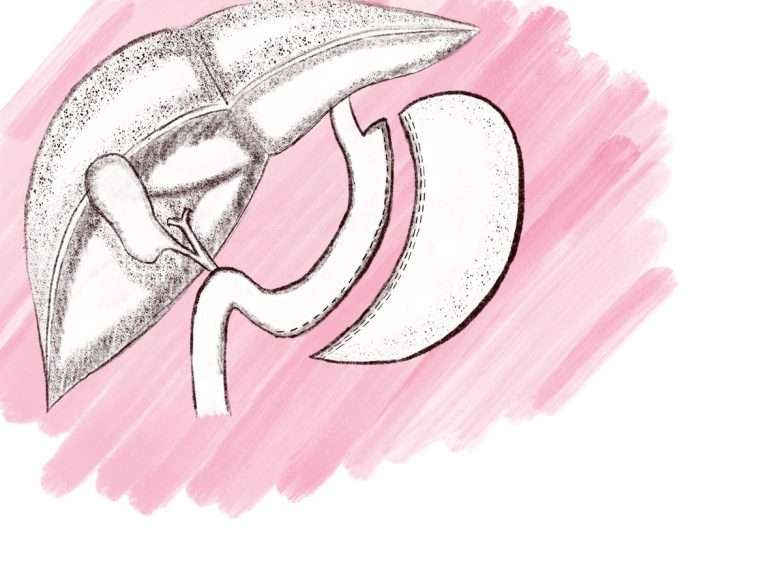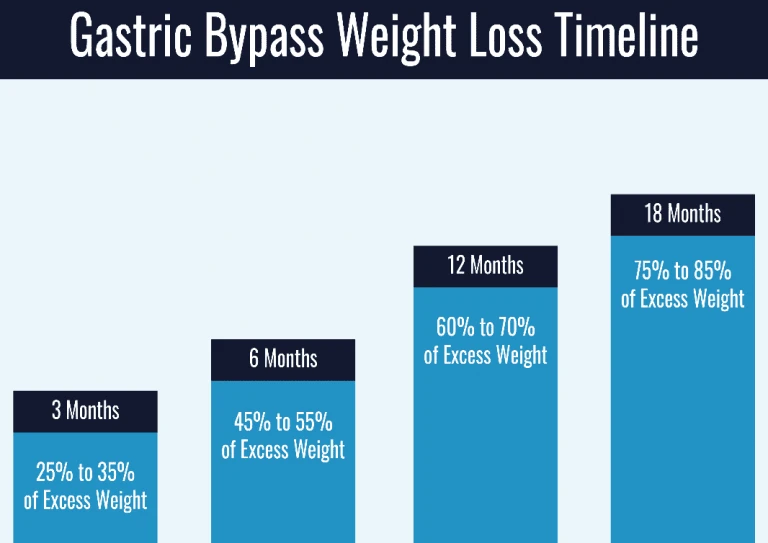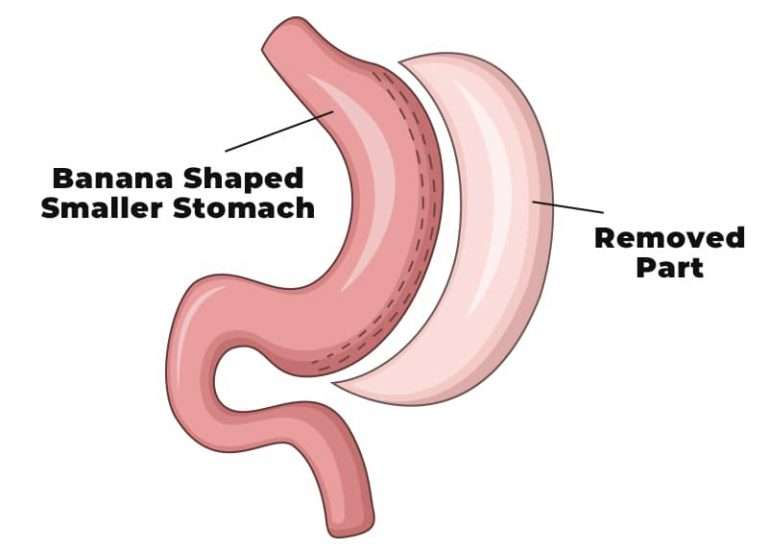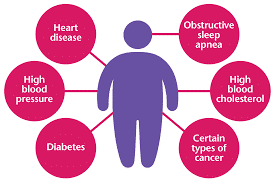After undergoing bariatric surgery, it is common for patients to feel anxious about losing weight. They often wonder, ‘does weight loss happens after gastric sleeve surgery?’
Yes, it does, but it is crucial to have reasonable expectations and realize that this process can take time.
Dr Harsh Sheth, an acclaimed bariatric surgeon in Mumbai, says, “Patients who have bariatric surgery must be prepared to make dietary and lifestyle adjustments when they regain their mobility and understand that weight loss takes time. They should expect noticeable improvements within the first year following their procedure.”
This article will focus on weight loss 4 weeks after gastric sleeve surgery.
Let’s begin with a gastric sleeve surgery overview.
Gastric sleeve surgery, also known as sleeve gastrectomy, is a weight loss procedure in which a large part of the stomach is removed, leaving a small, tube-shaped stomach or sleeve.
The surgery is designed to reduce the quantity of food that the stomach can hold, which can lead to weight loss.
“The surgery is usually recommended for people who are significantly overweight and have been unable to lose weight through other means, such as diet and exercise,” explains Dr Harsh Sheth, an expert gastric sleeve doctor in Mumbai.
He continues, “It is often considered a good option for people with a body mass index (BMI) of 37.5 or higher, or a BMI of 32.5 or higher with a serious obesity-related condition such as high blood pressure, or type 2 diabetes. At times, the surgery is even performed for patients with a BMI of 27.5-32.5 kg/m2 with severe uncontrolled diabetes mellitus.”
Dr Harsh Sheth is a proficient laparoscopic and bariatric surgeon with more than a decade of experience. You can visit him for consultation at Saifee Hospital, top gastric sleeve hospital in Mumbai.

Weight loss 4 weeks after gastric sleeve surgery
Weight loss after gastric sleeve surgery can vary from person to person. Some people may lose a significant amount of weight in the first 4 weeks after the procedure, while others may lose less.
On average, people tend to lose about 50-60 percent of their excess body weight in the first 6 months after gastric sleeve surgery.
Please be aware that weight loss after any bariatric surgery is a journey, and it is normal to have ups and downs.
It is of utmost importance to follow your surgeon’s recommendations and make healthy lifestyle changes, such as eating a balanced diet and exercising regularly, to support your weight loss.

What is the procedure for gastric sleeve surgery?
Gastric sleeve surgery, or sleeve gastrectomy, involves reducing the size of the stomach. The procedure is performed laparoscopically through several small incisions using specialized instruments.
Here is a brief overview of the procedure:
- The patient will be given general anaesthesia, so that they will be asleep during the surgery.
- The surgeon will make several tiny incisions in the abdomen.
- Then he will insert a laparoscope through one of the incisions.
- Then using specialized instruments and disposable staplers, the surgeon will remove a large portion of the stomach, leaving a small, sleeve-shaped stomach about the size of a banana.
- Finally, the incision will be closed with stitches or staples, and a bandage will be applied.
- The procedure typically takes about one to two hours to complete.
- The patient will need to stay in the hospital for one to two days to recover.
Weight loss and gastric sleeve surgery are interconnected. However, to ensure a successful outcome, you must follow the surgeon’s instructions for diet and exercise after the surgery.

The main goal of bariatric surgery is to lose weight. So, check out some of the best ways to avoid gaining weight after gastric sleeve surgery.
There are several ways to avoid gaining weight after gastric sleeve surgery:
Follow a healthy diet: It is essential to follow a balanced diet low in calories, fat, and sugar. It can help you lose weight and prevent weight gain.
Exercise regularly: Regular physical activity can help you burn calories and maintain a healthy weight.
Eat slowly and mindfully: After gastric sleeve surgery, eating slowly and paying attention to your body’s hunger and fullness cues is vital. It can help you avoid overeating.
Stay hydrated: Drinking enough water is necessary for weight management and overall health. Aim to drink at least 8 to 12 glasses of water per day.
Monitor portion sizes: Portion control is crucial after gastric sleeve surgery. Be mindful of the amount of food you eat, and stick to recommended portion sizes.
Follow up with your doctor: It is necessary to attend all of your follow-up appointments with your bariatric surgeon and to follow their advice for diet, exercise, and other lifestyle changes. This can help you stay on track and maintain your weight loss.

What are the risk factors with obesity?
Obesity is a significant risk factor for many serious health conditions, including:
- Cardiovascular diseases, such as heart disease, stroke, and high blood pressure
- Type 2 diabetes
- Musculoskeletal disorders, such as osteoarthritis
- Some cancers, including breast, colon, and endometrial cancer
- Sleep apnea and other respiratory problems
- Kidney disease
- Liver disease
- Mental health problems, such as depression and anxiety
In addition to these health risks, obesity can also reduce life expectancy.
Individuals who are obese need to work with their healthcare provider to develop a plan for achieving and maintaining a healthy weight.
This may include making lifestyle changes, such as eating a healthy diet and getting regular physical activity, and in some cases, it may also involve medication or weight loss surgery.

Outlook
For the best results from the surgery, both physically and mentally, patients should be constantly advised and encouraged to set realistic objectives and expectations related to weight loss, lowering the risk of comorbidities, and keeping a regular exercise program.
According to Dr Harsh Sheth, this would make it easier for individuals to maintain their weight loss objectives in a healthy manner.
If you are considering weight loss surgery and want to learn about total weight loss and the pros and cons of the procedure, you can visit Dr Harsh Sheth, a leading bariatric surgeon in Mumbai. He can help you decide if there is a need of gastric sleeve surgery or not.
FAQ
How much weight will I lose with gastric sleeve calculator?
A gastric sleeve calculator can estimate weight loss after surgery, but individual results vary. On average, people lose about 60-70% of excess body weight within 2 years. Consult a healthcare professional for personalized guidance, as success requires a healthy lifestyle post-surgery.
What are the chances of gaining weight after gastric sleeve?
The chances of gaining weight after gastric sleeve surgery depend on the patient’s commitment to healthy lifestyle habits. Most people who have the surgery and make lifestyle changes to support their weight loss experience long-term success. However, some patients may gain some weight back over time if they don’t maintain their healthy lifestyle.
What type of gastric sleeve can cause weight loss after 4 weeks?
After the surgery, most people will experience rapid weight loss in the first few weeks and months. Some people may see significant weight loss within the first month, while others may take longer to see results.
It is important to note that the success of gastric sleeve surgery depends on several factors, including the patient’s age, medical history, and commitment to lifestyle changes, such as following a healthy diet and exercising regularly.
Can exercise prevent gaining weight?
Yes. Exercise can help prevent weight gain after gastric sleeve surgery by increasing your metabolic rate and helping you burn off more calories.
Additionally, exercise can help build muscle mass, which can help you burn more calories even when you are at rest. Regular physical activity can help you maintain a healthy lifestyle and reduce stress.

